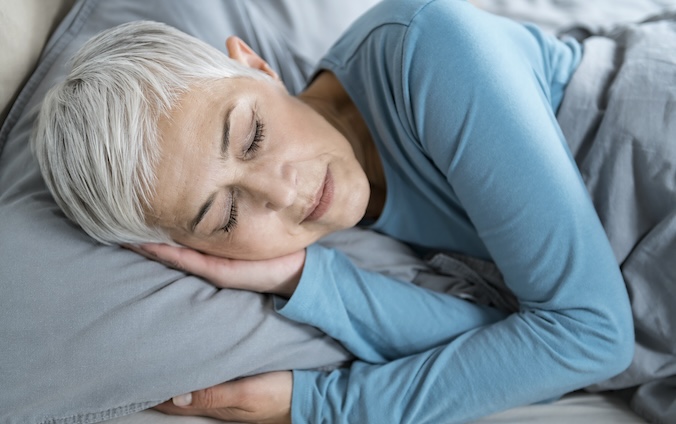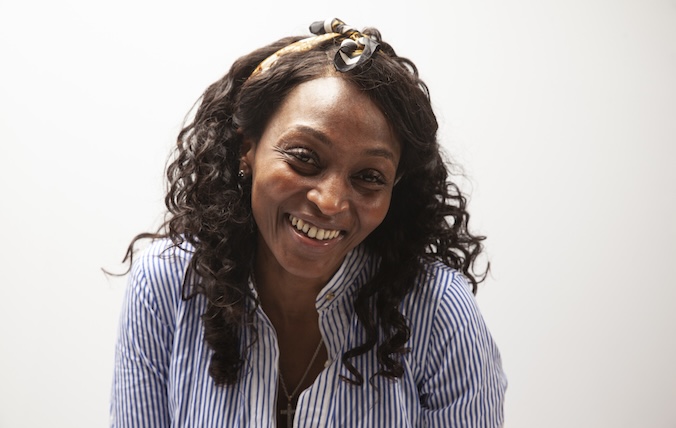Perimenopause, menopause & sleep: restore your natural rhythm

For many women, perimenopause and menopause bring with them an unexpected struggle of poor sleep. Whether its trouble drifting off, waking in the early hours, or night sweats that leave you tossing and turning, disrupted sleep becomes one of the most common - and frustrating - symptoms of hormonal change.
But there’s good news. At Rejuvenated we have a total wellbeing approach to helping you to align your lifestyle with your natural circadian rhythm, you can help your body find its rhythm again - improving sleep quality, reducing hot flashes, and supporting your overall health and mood.
Start your day with natural light
Your circadian rhythm, or internal body clock, responds directly to light. Getting outside in the morning - ideally within 30 minutes of waking - helps to signal to your brain that it’s time to be alert. This early exposure helps reset your internal clock and supports healthy production of cortisol and insulin, priming your body for energy and digestion.
Tip: Delay looking at your phone or other blue light sources until you’ve had a few minutes in natural daylight. This simple habit can significantly improve sleep-wake cycles.
Ease into the morning - no rush to eat
Your digestive system also follows a rhythm. Give your body time in the morning to naturally increase cortisol and insulin levels before eating or drinking anything other than water. This allows your body to properly activate, enhancing digestion and metabolic health.
Evenings are for winding down
Just as your body needs stimulation in the morning, it needs calm in the evening. Avoid blue light (phones, screens, bright overhead lighting) at least 1-2 hours before bed, as it suppresses melatonin - your body’s natural sleep hormone.
Avoid eating or drinking anything (besides water) 2-3 hours before bedtime. This gives your body time to fully digest, so it can shift from digestion to deep repair mode, including activating melatonin production so that you sleep more peacefully and your body can focus on cellular repair.
Skip late-night workouts
While movement is incredibly beneficial for hormone balance, exercise too close to bedtime can raise your core temperature, making it harder to fall asleep - and for perimenopausal and menopausal women, it can also increase hot flashes. Instead, opt for gentle stretching or relaxation techniques in the evening.
Why good sleep matters during menopause
Restful sleep isn’t just about feeling less tired. It’s when the body repairs itself, especially the adrenal glands, which play a vital role in managing stress. Quality sleep also supports gut health, helping to balance the immune system, reduce inflammation, and keep digestion running smoothly.
And perhaps most importantly, sleep is essential for brain health - including memory consolidation, emotional regulation, and protection against age-related cognitive decline.
Why your circadian rhythms are more important than you think
Our bodies run on an internal 24-hour clock, known as the circadian rhythm. You might think this only affects your sleep, but in fact, almost every organ in your body has its own “mini clock” working in harmony with your brain’s master clock.
These clocks help to:
- Liver - manage metabolism, detoxification and energy from food
- Heart - regulate heart rate and blood pressure
- Kidneys - balance fluids and blood pressure
- Digestive system - support healthy digestion and nutrient absorption
- Hormones - guide the release of cortisol, melatonin and more
- Skin - regulate repair, protection and regeneration, helping you look and feel your best
When these rhythms are in sync, your body works at its best. But if they’re disrupted through poor sleep, irregular eating, late-night screen time or stress it can impact energy, digestion, metabolism, skin health and even long-term wellbeing.
Living in Sync: Simple Steps to Support Your Circadian Rhythm
· Stick to a regular sleep and wake time
· Get natural light during the day, and dim lights in the evening
· Eat meals at consistent times and avoid eating late at night
· Move your body daily
· Give yourself time to wind down before bed
By looking after your circadian rhythm, you’re not just supporting sleep - you’re helping your whole body, including your skin, work in harmony from morning energy to nighttime repair.
Discover which Rejuvenated products can support your hormones here.








